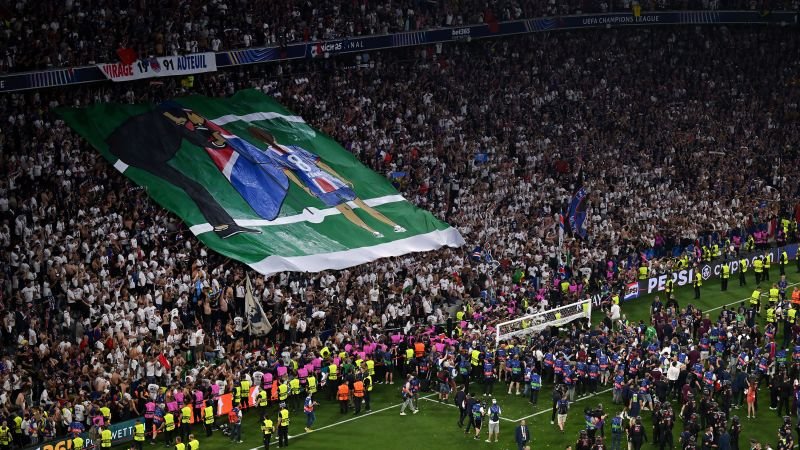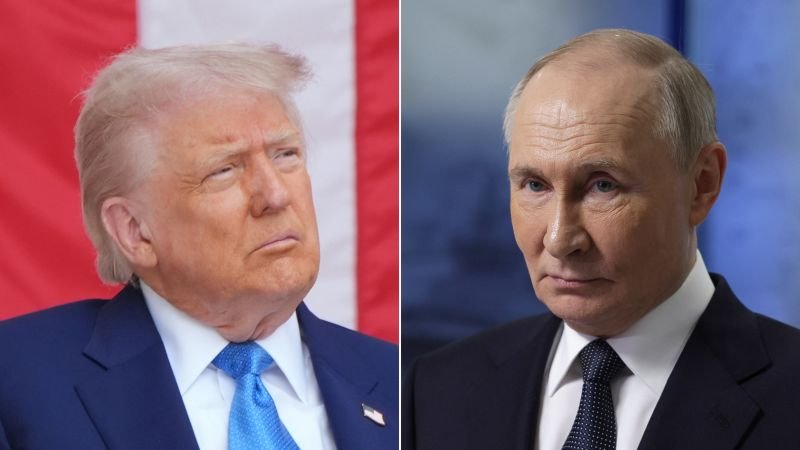Sign up for CNN’s Wonder Theory science newsletter. Explore the universe with news on fascinating discoveries, scientific advancements and more.
CNN
—
A Soviet-era spacecraft that was designed to make a soft landing on Venus — but instead remained trapped in Earth orbit for decades — is slated to fall from the sky Friday night or early Saturday, according to the latest estimates from experts.
The object, referred to as Cosmos 482 or Kosmos 482, is believed to be a capsule launched by the Soviet Union in March 1972 that failed en route to a transfer orbit that would have taken it to Venus to study its environment.
In the decades since, the object has circled Earth aimlessly as it was slowly dragged back toward home.
Astronomers and space traffic experts have had their eyes on the object for years now as its orbital path has slowly reached lower and lower altitudes, a result of the subtle atmospheric drag that exists even hundreds of miles away from Earth.
The cylinder-shaped craft, which is about 3 feet (1 meter) in diameter, is now predicted to crash back to Earth overnight. Cosmos 482 is on track to hit the ground or ocean roughly between 10 p.m. and 6:30 a.m. ET, according to four analyses of the object from various institutions, including the European Space Agency and the federally funded US research group Aerospace Corporation.
That guidance is still in line with predictions issued by space traffic experts earlier this week. The estimated time frame of the vehicle’s final descent will narrow as the event approaches.
Because of the sheer complexity of spaceflight and unpredictable factors, such as space weather, it can be extremely difficult to pinpoint exactly when or where an object will fall out of orbit.
This particular piece of space junk likely won’t pose a risk to people on the ground.
“This object was designed to survive reentering Venus, so there’s fair odds that it’ll survive coming back (to Earth) in one piece,” said Marlon Sorge, a space debris expert with The Aerospace Corporation, on Monday. “That actually makes the risk less … because it would stay intact.”
Often, when spaceborne garbage hurtles back toward Earth, objects such as defunct rocket parts are torn apart by the jarring physics as they can slam into Earth’s thick inner atmosphere while still traveling at more than 17,000 miles per hour (27,000 kilometers per hour).
Each of the pieces from the rocket part can then pose a threat to the area where it lands.
But Cosmos 482 is uniquely suited to make the trip home in one piece. The spacecraft has a substantial heat shield that protects the vehicle from the intense temperatures and pressures that can build up during reentry.
And because Cosmos 482 was designed to reach the surface of Venus — where the atmosphere is 90 times denser than Earth’s — the probe is likely to reach the ground intact.
The Soviet Union’s Space Research Institute, or IKI, ran a groundbreaking Venus exploration program amid the 20th century space race.
Venera, as the program was called, sent a series of probes toward Venus in the 1970s and ’80s, with several spacecraft surviving the trip and beaming data back to Earth before ceasing operations.
Of the two Venera vehicles that were launched in 1972 , however, only one made it to Venus.
The other, a spacecraft sometimes cataloged as V-71 No. 671, did not. And that’s why researchers believe the object that space traffic experts are tracking is Cosmos 482. (Beginning in the 1960s, Soviet vehicles left in Earth orbit were each given the Cosmos name and a numerical designation for tracking purposes, according to NASA.)
While a landing on dry ground is unlikely, it’s not impossible. The Cosmos 482 object’s trajectory shows it could hit anywhere within a broad swath of land that includes “the whole of Africa, South America, Australia, the USA, parts of Canada, parts of Europe, and parts of Asia,” said Marco Langbroek, a lecturer and space traffic expert at Delft Technical University in the Netherlands, via email.
Sorge emphasized that if Cosmos 482 hits the ground after its final descent tonight, onlookers are advised to keep their distance. The aged spacecraft could leak dangerous fuels or pose other risks to people and property.
“Contact the authorities,” Sorge urged. “Please don’t mess with it.”
Legally speaking, the object also belongs to Russia. According to rules mapped out in the 1967 Outer Space Treaty — which remains the primary document underpinning international law on the matter — the nation that launched an object to space retains ownership and responsibility for it even if it crashes back to Earth decades after launch.
Though defunct objects in space routinely fall out of orbit, most pieces of debris disintegrate entirely during the reentry process.
But the world is in the midst of a new space race, with commercial companies such as SpaceX launching hundreds of new satellites to orbit each year. That burst in activity has raised alarms across the space traffic community, as experts are seeking to ensure that objects don’t collide in space or pose a risk to humans if they make an uncontrolled descent back home.
Safety standards have drastically improved since the 20th century space race when the Soviet Venus probe was launched, noted Parker Wishik, a spokesperson for The Aerospace Corporation.
Still, incidents such as the impending impact event are a stark reminder.
“What goes up must come down,” Wishik said. “What you put up in space today might affect us for decades to come.”


























